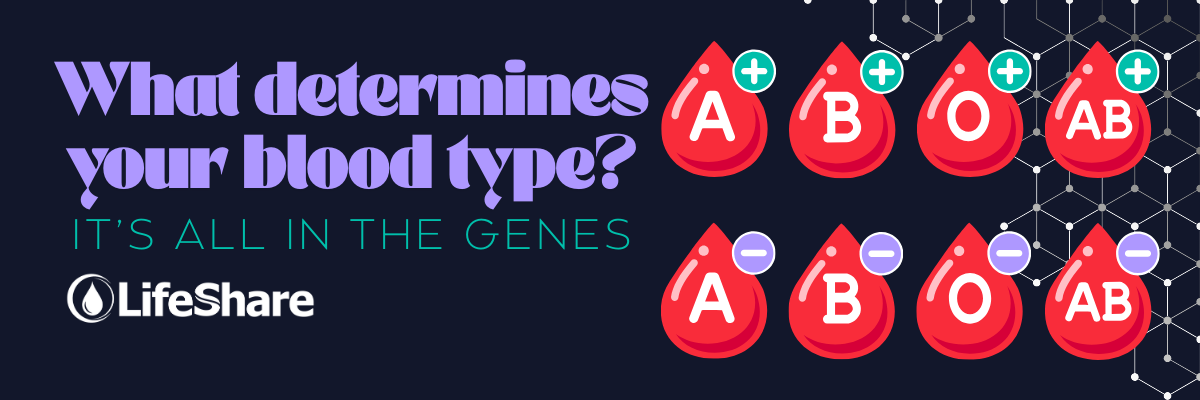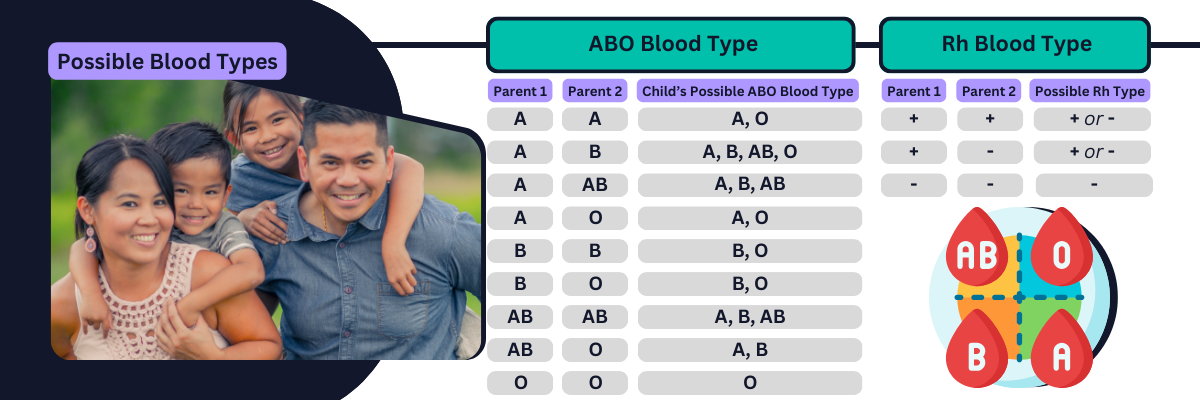Ever wonder why your blood type is A, B, AB, or O? Or what it means when someone says they’re “O negative”? Believe it or not, your blood type is like a biological name tag—and it’s been with you since the moment you were born, thanks to the genes you inherited from your parents.
The Basics: ABO Blood Types
Your blood type is primarily determined by antigens—special proteins—on the surface of your red blood cells. The most well-known system for classifying blood is the ABO Blood Group System, which divides blood into four main types:
- Type A has A antigens
- Type B has B antigens
- Type AB has both A and B antigens
- Type O has neither A nor B antigens
These antigens are passed down from your parents. Each parent gives you one gene, and the combination of these determines your blood type. It’s like a genetic recipe—what you get from Mom and Dad mixes to create your unique blood type.
The Rh Factor: The Positive or Negative Side
But that’s only part of the story. The Rh factor adds another layer, making your blood type either positive (+) or negative (−). For example, you might be A+, B−, or O+. The Rh factor is also inherited. It’s based on the presence or absence of a certain protein on your red blood cells. If you have the protein, you’re Rh-positive. If you don’t, you’re Rh-negative.
Here’s a twist: Rh-positive is dominant, so even if only one of your parents passes down the Rh+ gene, you’re likely to be Rh-positive.
When the Rules Don’t Apply
Genetics usually follows predictable patterns—but not always. There are rare conditions that can throw a wrench in the usual blood type inheritance:
- Chimerism: When a person has two sets of DNA, possibly from absorbing a twin in the womb.
- Bombay Blood Group: An extremely rare blood type that doesn’t fit into the typical ABO system.
- Cis-AB Blood Type: A rare genetic variant where A and B antigens are inherited together from one parent.
- Mutations: Sometimes, spontaneous genetic changes can affect blood type in unusual ways.
Why It Matters
Knowing your blood type is more than just trivia—it’s crucial for safe blood transfusions, pregnancy care, and even organ donation. It’s also a fascinating peek into how your genetic makeup affects your biology.
So next time someone asks, “What’s your blood type?” you’ll know it’s more than just a label—it’s a genetic story written in your veins.
Don’t know your blood type?
Donating blood is an excellent way to find out. Every first-time donor will receive a donor card to carry in your wallet with your blood type—great to have on hand in case of emergencies!
Do we need blood from all blood types?
Yes! We need donations from all ABO types. Blood and blood components are an intricate part of the health care system. Giving the right type of donation (ALYX, Whole Blood, Platelets, or Plasma) helps ensure the greatest impact of your life-saving gift. When you arrive for your donation, LifeShare staff will recommend a donation procedure that is best suited for your blood type and current patient needs. Want to be prepared in advance? Read more about what you should give based on your blood type.
Book your appointment today!
References:
What are all the possible blood types for any combination of parents? (The Tech Interactive, 17 NOV 2006)
How is blood type inherited? And do exceptions ever happen? (The Tech Interactive, 18 MAR 2022)

